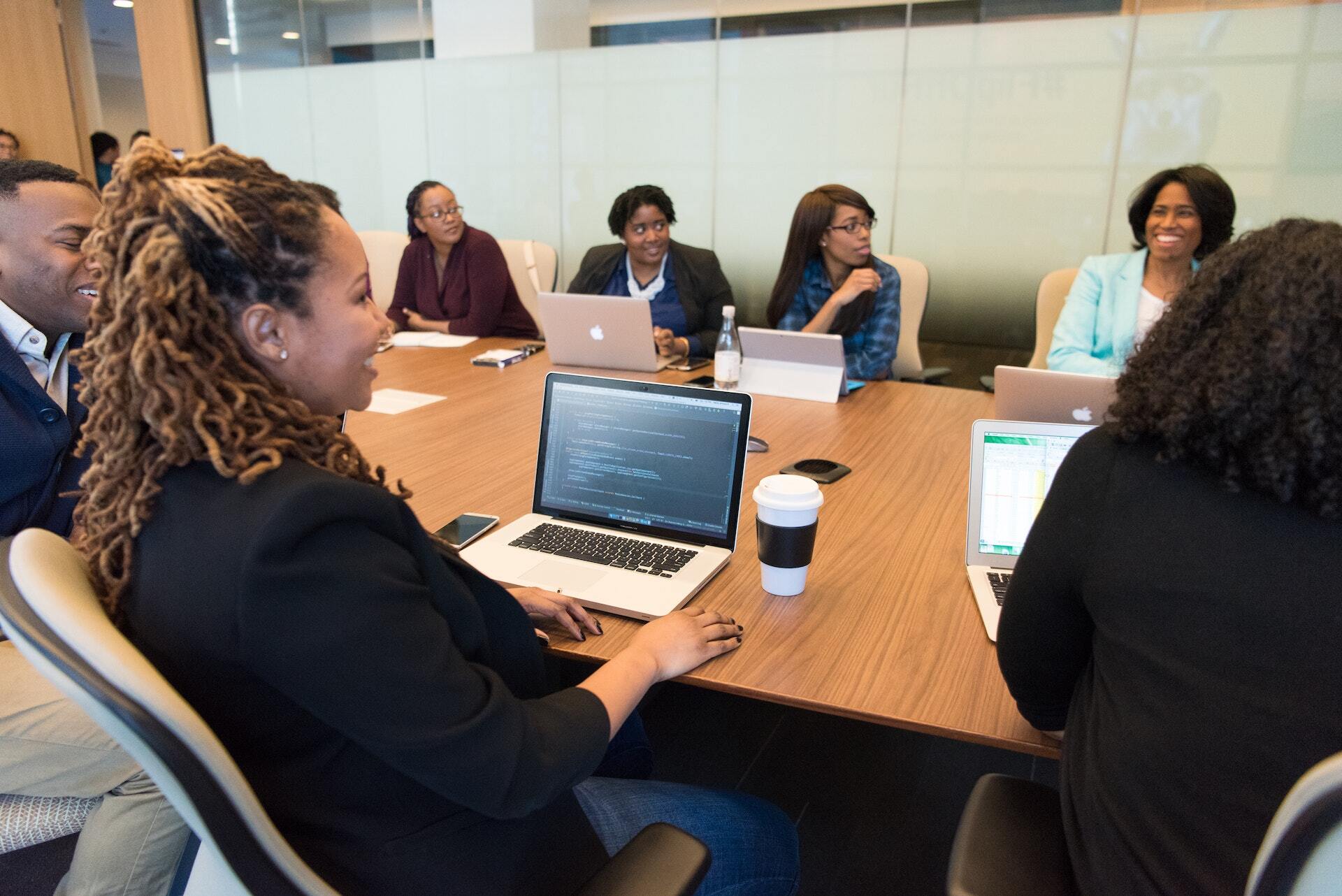Audio version
I remember sitting in a conference (or it might have been a webinar), approximately 2 years ago where I heard a panelist talk about how she won a contract because her company was the only woman-owned venture to respond to and be qualified to deliver on a particular RFP. She had been certified as a woman-owned small business (WOSB) at the federal level, and this is how this particular panelist won her first government bid. Great, I thought, if it can happen for her, it can happen for me.
The reality is that 3 years later and a lot of request for proposals (RFPs), request for information (RFIs), request for quotes (RFQs) and request for responses (RFRs), I understand that that particular woman’s story is the story of an outlier. Her story does not represent the norm. So in order to leverage any kind of certification you get, it's important to understand two basic things;
1. Government Contracting is Sales.
Government contracting is just like any other sale––you must build a sales funnel. So that means, understanding who your ideal customer is in order to create an accurate profile. It also means generating appropriate marketing materials while also understanding the procurement cycle for the agency (if it’s federal), division (if it’s at the state level) or department (if you are starting out with municipal contracts) in order to understand and build your own sales process.
2. Take the long view when it comes to public sector contracting
Responding to RFPs, RFRs, RFIs, etc. is a time investment that might not yield dividends for a long time. One of my mentors once told me that you must not treat the government bidding process in an opportunistic way. Understand that there has to be a strategy to how you respond to government contracts. A general rule of thumb I have learned is if you are responding to an RFP when it comes out, it’s usually too late. There needs to be a relationship with the contracting officer as well as the team to increase the likelihood of success. The team has to trust your business and know that you have the capacity and the infrastructure to deliver. So yes, you can attend bidders’ conferences, talk to procurement officers, and respond to the RFP but the likelihood that you will win as an unknown entity is quite slim. It's your job as a business owner to get whoever the procurement or Contracting officer is to know and understand your business.
Responding to RFPs, RFRs, RFIs, etc. is a time investment that might not yield dividends for a long time. One of my mentors once told me that you must not treat the government bidding process in an opportunistic way. He explained that I must understand that there has to be a strategy to how I, as a business owner, respond to public sector solicitations.
A general rule of thumb I have learned is if you are responding to a bid solicitation when it comes out (without any prior contact with the contracting team), you're already too late to make any real impact. As a business owner, you need to cultivate a relationship with the contracting officer (or team) before crafting your response to the solicitation in order to increase the likelihood of success. The team has to trust your business and know that you have the capacity and the infrastructure to deliver. So yes, you can attend bidders’ conferences, talk to procurement officers, and respond to the bid solicitation but the likelihood that you will win as an unknown entity is quite slim. It's your job, as a business owner, to get whomever the procurement or contracting officer to know and understand your business beyond what you put on the page.
Now that I have shared my experience, let me share some facts. There's a phenomenon that's been happening for a long time called bundling in the government contracting space. Bundling in public sector procurement refers to the practice of grouping multiple products or services into a single, comprehensive contract or procurement package. While this approach may streamline the government's purchasing process and potentially offer cost savings, it often presents challenges for small business owners. Bundling can create barriers to entry, limiting opportunities for smaller enterprises to compete for government contracts.
To work around bundling as a small business owner, several strategies can be employed. First, networking and relationship-building with government procurement officials can help raise awareness of your capabilities and the value you can bring. Additionally, forming partnerships or consortiums with other small businesses can increase your collective capacity to meet the requirements of bundled contracts. Leveraging specialized certifications or set-aside programs for small businesses can also provide advantages in pursuing government opportunities, even within bundled procurements. Finally, staying informed about upcoming contracts and advocating for unbundling when appropriate can help level the playing field and open doors for small businesses in the public sector marketplace.
Now let’s close things out with some sage advice.
If you're just starting out in the public procurement space, my advice is that you start local. The city that you live in or even the big city next door to you has contracting opportunities. Look for those opportunities because those have the lowest barriers to entry. Understand that you have to demonstrate your ability to deliver on public sector projects, no matter the size. That means you must have the right marketing materials in the form of a capability statement, brochures (both digital and print), a social media presence, and a dedicated page on your website that you drive public sector stakeholders to in order to move them through your sales funnel. Your marketing should also include an audit of your digital footprint on social media and in search engines. Everything online and in person matters because these bits of information are crucial elements to helping a procurement officer (or team) make a buying decision when it comes to your business. Remember public sector officials, especially procurement officers, are thorough and risk averse because they have to answer to a team.Having a drip campaign or templates with prewritten messages is also essential. And like any other sale, make sure to track these contacts in your customer relationship management (CRM) system.
In summary, understand that there is no magic bullet when it comes to public sector procurement. Also, if you are not getting anywhere with public sector sales, then you need to step back and assess your strategy, marketing materials, your sales funnel, and even your digital footprint–– sometimes the biggest barrier to you getting that contract is you. You must make sure you also do your due diligence. This means talking to the contracting team. Understand where the services need to be delivered within the organization. This goes beyond just writing a proposal. You must be able to understand the specific nuances that go beyond just who is making a buying decision. The politics of the organization, the history of the project, and the teams or departments involved are all essential to what needs to go on paper. Remember every bid solicitation that is release by a public sector official has a history. You have to understand the history and the context of what it is that you're getting into. And also understand if you are a match and have the capacity to actually deliver a product that whoever is putting their trust in you can feel confident about.
Have any other thoughts? Please feel free to share them below.


0 Comments:
Leave a Reply